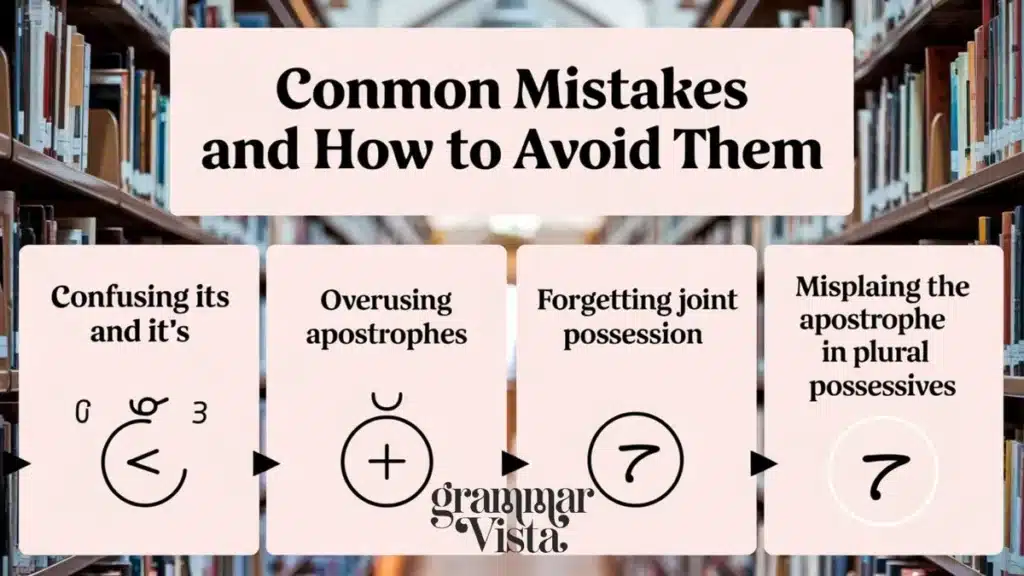In the vast landscape of modern English, few grammatical quandaries spark as much debate as the proper use of possessives. For the language enthusiast, the question of whether to write “Lucas’s” or “Lucas'” can be as perplexing as solving a Rubik’s cube blindfolded. This article aims to shed light on this linguistic conundrum, exploring the intricacies of grammatical possession and offering clarity to writers, editors, and curious minds alike.
The Singular Possessive Dilemma
At the heart of this debate lies the singular possessive form of nouns ending in ‘s’. While some argue for simplicity with just an apostrophe, others insist on adding an extra ‘s’ for clarity. Let’s dive into the rules, exceptions, and real-world applications that govern this aspect of English grammar.
The General Rule
In most cases, to form the possessive of a singular noun, we add an apostrophe and an ‘s’, regardless of the final letter. This rule applies to proper nouns as well. For example:
- The cat’s toy
- James’s bicycle
- The boss’s office
However, when it comes to names ending in ‘s’, opinions diverge, and style guides offer different recommendations.
Style Guide Showdown
The Chicago Manual of Style

The revered Chicago Manual of Style, often considered the bible of American English usage, recommends adding ‘s to most singular nouns, including those ending in ‘s’, ‘x’, or ‘z’, to form the possessive. According to this guide, you’d write:
- Lucas’s car
- Charles’s book
- Marx’s theories
This approach ensures consistency across most singular nouns and aligns with how we typically pronounce these possessives in speech.
Other Style Guides

Not all style guides march to the same beat. Some, like the Associated Press Stylebook, suggest using only an apostrophe for singular nouns ending in ‘s’:
- Lucas’ car
- Charles’ book
- Marx’ theories
This divergence in guidelines contributes to the ongoing debate and confusion among writers.
Read More about Business’ or Business’s?
Real-World Scenarios: Possessives in Action
Let’s explore some scenarios where this grammatical quandary might arise, showcasing both the complexity and the importance of understanding possessive forms.
Scenario 1: The Surprise Celebration

Imagine you’re planning a surprise celebration for your friend Lucas. You might find yourself writing:
“We’re gathering at Lucas’s house for the party.”
Or, depending on your style preference:
“We’re meeting at Lucas’ place for the festivities.”
Both forms are technically correct, though “Lucas’s” aligns more closely with pronunciation and the recommendations of comprehensive style guides like the Chicago Manual of Style.
Scenario 2: The Leaky Faucet

Consider a situation involving a plumbing issue:
“Lucas’s leaky faucet kept him up all night.”
Here, the possessive form clearly indicates that the faucet belongs to Lucas, emphasizing the personal nature of the problem.
Scenario 3: Artwork Displayed

In a gallery setting, you might encounter:
“Lucas’s artwork displayed in the main hall drew significant attention.”
This construction not only denotes ownership but also highlights the artist’s achievement.
Diving Deeper: The Linguistics Behind Possessives
To truly grasp the nuances of possessive forms, it’s crucial to understand the linguistic principles underlying them.
Historical Context
The use of the apostrophe to indicate possession is a relatively recent development in the long history of the English language. In Old English, possession was typically indicated by inflection, with the genitive case serving this purpose. As the language evolved, the apostrophe emerged as a way to mark the omission of letters, eventually extending to indicate possession.
Phonetic Considerations
One argument for including the extra ‘s’ after the apostrophe (as in “Lucas’s”) is that it reflects how we typically pronounce these possessives. When speaking, we often naturally add an /əz/ sound to possessive forms of words ending in sibilant sounds (like ‘s’, ‘z’, ‘ch’, ‘sh’).
Grammatical Clarity
The debate between “Lucas’s” and “Lucas'” also touches on the principle of grammatical clarity. Proponents of “Lucas’s” argue that it more clearly distinguishes between plural and possessive forms, especially for names that might be confused in plural form.
Exceptions and Special Cases
While general rules provide a framework, English, true to form, offers a plethora of exceptions and special cases to keep writers on their toes.
Ancient Names
For ancient or classical names ending in ‘s’, many style guides recommend using only the apostrophe:
- Socrates’ philosophy
- Achilles’ heel
- Jesus’ teachings
This exception acknowledges the historical and traditional treatments of these names.
Plural Nouns Ending in ‘S’
When dealing with plural nouns that already end in ‘s’, we simply add an apostrophe after the ‘s’:
- The dogs’ toys (referring to toys belonging to multiple dogs)
- The Joneses’ house (referring to the house belonging to the Jones family)
Compound Nouns
With compound nouns, the possessive form is typically added to the final word:
- My sister-in-law’s car
- The editor-in-chief’s decision
You might be interested in Month’s, Months’ or Months?
Practical Applications: Navigating Possessives in Writing
Understanding the nuances of possessive forms is crucial for clear, professional communication. Here are some practical tips for applying this knowledge in your writing:
- Consistency is Key: Whatever style you choose, maintain consistency throughout your document or publication.
- Consider Your Audience: Academic writing might favor the more formal “Lucas’s,” while journalistic writing might lean towards “Lucas’.”
- When in Doubt, Rewrite: If you’re unsure about a possessive form, consider rephrasing. “The house belonging to Lucas” sidesteps the issue entirely.
- Read Aloud: Often, reading your sentence aloud can help you determine which form sounds more natural.
- Check Style Guides: If writing for a specific publication or institution, consult their preferred style guide.
The Digital Age: Possessives in Online Writing
In the era of digital communication, understanding possessive forms remains crucial, perhaps even more so given the rapid pace and wide reach of online content.
Social Media and Brevity
On platforms like Twitter, where character count is at a premium, some writers might opt for the shorter “Lucas'” to save space. However, clarity should never be sacrificed for brevity.
SEO Considerations
For those concerned with search engine optimization (SEO), it’s worth noting that search engines are sophisticated enough to understand both “Lucas’s” and “Lucas'” as possessive forms. Focus on clear, natural writing rather than trying to optimize for one form over the other.
Online Style Guides
Many online publications have their own style guides addressing this issue. For instance, Wikipedia generally follows the “Lucas’s” format for singular possessives, including those ending in ‘s’.
The Evolution of Language: Possessives in Modern English
Language is ever-evolving, and the debate over possessive forms reflects this ongoing change. In contemporary English, we see a trend towards simplification in some areas, yet a persistence of traditional forms in others.
Informal vs. Formal Contexts

In informal writing, such as text messages or casual emails, you might notice a tendency towards simpler forms (e.g., “Lucas’ car”). However, in formal writing, adherence to style guide recommendations remains important.
Regional Variations

It’s worth noting that preferences can vary regionally. British English, for example, sometimes leans more towards the “Lucas'” form, especially in journalistic writing.
Possessives Beyond Nouns: A Broader Perspective
While our focus has been on nouns, possessive forms extend beyond this category, adding further layers to our understanding of grammatical possession.
Pronouns and Possession
Personal pronouns have their own possessive forms that don’t use apostrophes:
- My, your, his, her, its, our, their
These forms simplify possession for pronouns, avoiding the need for apostrophes altogether.
Indefinite Pronouns
Some indefinite pronouns also have possessive forms:
- Everyone’s opinion matters.
- Somebody’s phone is ringing.
Common Mistakes and How to Avoid Them

Even seasoned writers can stumble over possessive forms. Here are some common pitfalls and how to sidestep them:
- Confusing Its and It’s: Remember, “its” is possessive, while “it’s” is a contraction of “it is” or “it has.”
- Overusing Apostrophes: Avoid adding apostrophes to non-possessive plurals (e.g., “The Smith’s are coming” should be “The Smiths are coming”).
- Forgetting Joint Possession: When indicating joint possession, only the last noun takes the possessive form (e.g., “John and Mary’s house”).
- Misplacing the Apostrophe in Plural Possessives: For plural nouns ending in ‘s’, the apostrophe goes after the ‘s’ (e.g., “The teachers’ lounge”).
The Future of Possessives: Trends and Predictions
As language continues to evolve, so too might our approach to possessive forms. Some linguists predict a gradual simplification, potentially leading to more widespread acceptance of forms like “Lucas'” for all singular possessives ending in ‘s’. However, the persistence of traditional forms in academic and formal writing suggests this change, if it comes, will be slow.
Embracing the Complexity of Language
The debate over “Lucas’s” versus “Lucas'” is more than just a grammatical quibble; it’s a testament to the rich, complex nature of the English language. As writers, editors, and language enthusiasts, we navigate these waters guided by style guides, personal preference, and an ear for what sounds right.
Whether you’re crafting an academic paper, penning your next novel, or simply sharing your thoughts in a blog post, understanding the nuances of possessive forms enhances your ability to communicate clearly and effectively. Remember, language is a tool for expression, and mastering its intricacies allows you to wield that tool with greater precision and creativity.
Read More grammar lessons on GrammarVista
Conclusion
In the end, whether you choose “Lucas’s” or “Lucas’,” the most important thing is consistency and clarity in your writing. By understanding the rules, exceptions, and contexts surrounding possessive forms, you equip yourself to make informed choices that serve your communication goals.
So, the next time you find yourself pondering over a possessive form, take a moment to appreciate the depth and flexibility of the English language. It’s these little challenges that make the journey of writing both frustrating and immensely rewarding. After all, in the grand tapestry of language, it’s the subtle threads of grammar that often weave the most interesting patterns.







